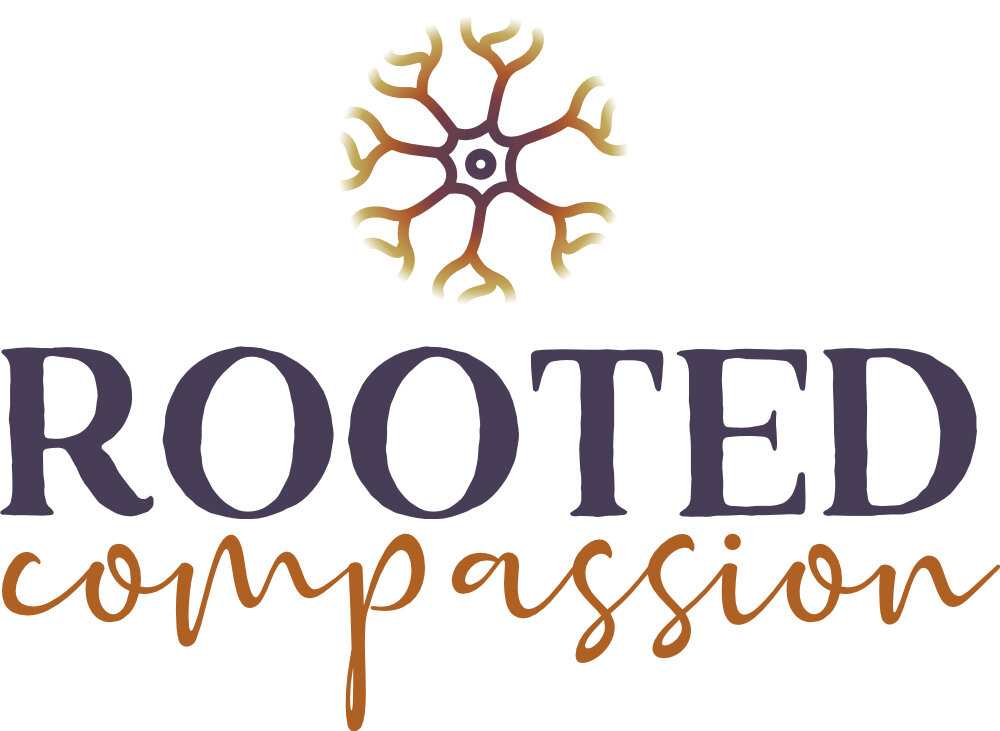Finding Our Way Through Connection
We all long for a space where we can be our true selves without judgment or expectation. A space where our vulnerability is met with compassion and understanding. We all deserve spaces we feel seen, heard, valued, celebrated. We deserve others to assume positive intent, to offer grace, compassion, to see us as fallible human beings all just trying our best.
In the fast-paced world we find ourselves in, juggling families or career aspirations or a societal pressure that often tells us we aren’t quite good enough, the therapy space should and can offer a reprieve. A safe place to catch our breaths. A safe place where someone listens just to understand, whose only focus is you and the nurturing space we all need and deserve.
Enter the therapy space - a nurturing environment where we can find solace, healing, and growth. The Polyvagal Theory, developed by Dr. Stephen Porges, offers a powerful framework for understanding how the nervous system responds to social interaction and how therapeutic relationships can facilitate healing.
The therapeutic relationship gives our nervous system the opportunity to receive safe connection, to pause, to relax, and to receive the message of a safe relationship.
As Dr. Arielle Schwartz puts it, "Through a healthy therapeutic relationship, you have opportunities to attend to the relational wounds from your childhood. Co-regulation in psychotherapy provides opportunities for you to have new, socially learned experiences of connection, attunement, acceptance, and compassion."
This response is mediated by the parasympathetic nervous system and is known as the Social Engagement System. This system enables us to connect with others, communicate, and cooperate in ways that promote safety and well-being.
The Social Engagement System is thought to be activated by cues of safety and connection, such as eye contact, facial expressions, and prosodic features of speech.
When we feel safe and connected, our body responds by lowering our heart rate, reducing muscle tension, and promoting deeper breathing.
This response creates a sense of calm and safety that allows us to engage with others in a meaningful and authentic way, essential to the work of effective therapy. According to Polyvagal Theory, the therapeutic relationship can be seen as a safe and nurturing environment that activates the Social Engagement System.
It has been a wonderful gift to experience my clinical mental health internship at Rooted Compassion, where the therapists live and breathe the power of safe connection and safe spaces.
Through my time here, I’ve learned that clients bring their own nervous system and past experiences into the therapy room.
As a clinical mental health intern, I have witnessed firsthand how essential it is for therapists to be attuned to their clients' nervous system and create a supportive environment that promotes connection and healing.
As clients, it's important to ask ourselves how we feel around our therapist and in their space. Do we feel safe, seen, heard, and valued? When we do, we can better regulate our emotions, explore difficult experiences, and make meaningful changes in our lives.
So let us all remember the power of safe connection and the value of nurturing spaces. May we seek them out and offer them to others. After all, we all deserve a safe haven in this fast-paced world - a space where we can catch our breath, feel seen and heard, and experience healing and growth.
References:
Schwartz, A. (2019, December 17). Connection and co-regulation in psychotherapy: Dr. Arielle Schwartz. Arielle Schwartz, PhD. Retrieved March 29, 2023, from https://drarielleschwartz.com/connection-co-regulation-psychotherapy-dr-arielle-schwartz/#.ZCRc23bMLIU
Photo Credit:
The Rooted Compassion team is made up of a group of counselors who have a variety of specialties in order to best serve our clients. We recognize that every person has his/her own personal and unique life experiences and that one modality will not work for every client. Listed below is a summary of our counselors’ specialties at Rooted Compassion:
Emotional Freedom Techniques
Grief Counseling
Somatic Focused Counseling
EMDR
Cognitive Behavioral Therapy
Dialectical Behavior Therapy
Mindfulness-Based Practices
Trauma Responsive Care Techniques
Acceptance and Commitment Therapy
Drama Therapy/Expressive Arts
If you are interested in learning more about what Rooted Compassion is all about, please contact us today, look through our website, or find us on Instagram and Facebook.
Rooted Compassion Counseling is Ohio’s leading practice for trauma therapy through the lens of the nervous system. Our focus is to walk alongside clients as they heal from depression, anxiety, trauma, grief and/or loss. If you or someone you know are seeking to explore and build an inner sense of calm and safety, please contact us today. We would love to help you to find a counselor and counseling techniques that will guide you on your mental health journey to healing.



